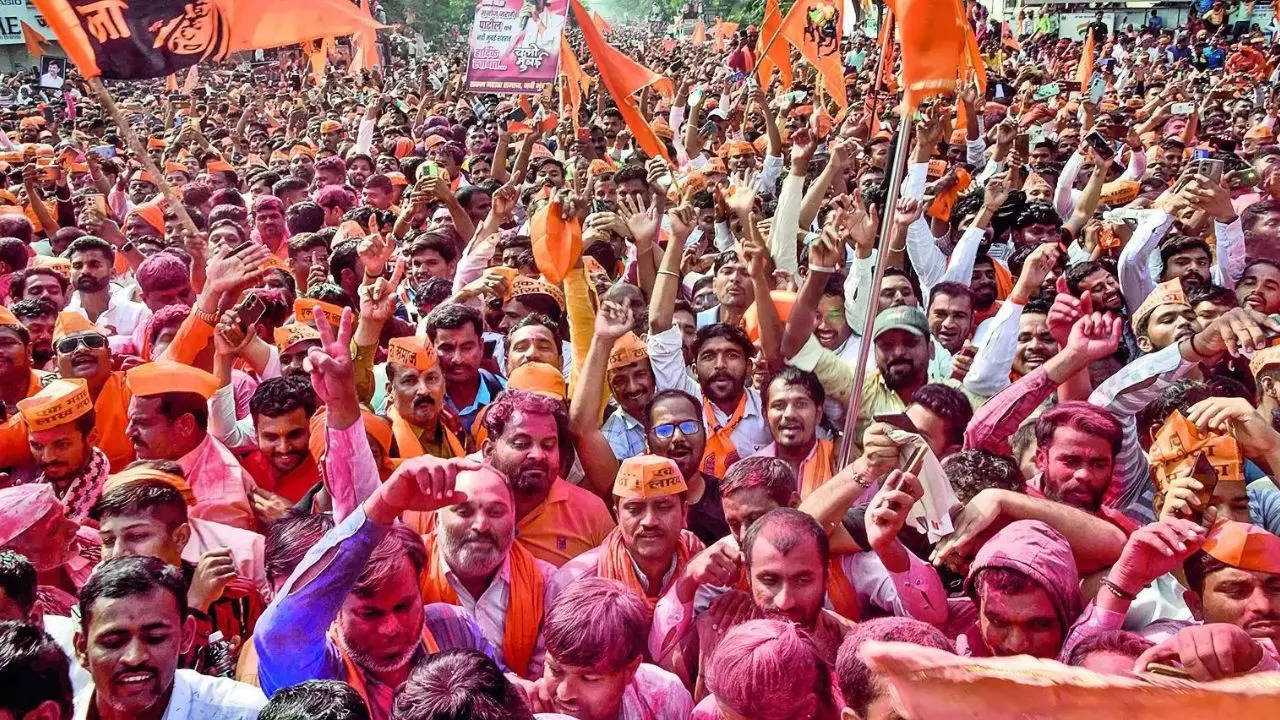MUMBAI: The state government is likely to hold a special session of the assembly to enact legislation on the Maratha quota after Feb 18th, officials said.
Sources said the one-day special session is likely to be held between the 18th and 25th. The state budget session will follow by the end of the month.
The government is waiting for the report on the Maratha survey before announcing the assembly session. The Gokhale Institute for Politics and Economics had conducted a survey of 2.5 crore families in the state in order to try and establish the backwardness of the Maratha community.
The Maharashtra State Backward Class commission is analysing the results of the survey and hopes to give its report to the government in the next few days. “Once the survey report comes, we will be able to plan the assembly session,” said a senior official.
During the session, the state is expected to table a bill providing for a quota for Marathas in government jobs and education. In the past, the state has made two attempts to provide for a quota through the state legislature. In both cases, the quota was stayed by the court.
In 2014, the Prithviraj Chavan government brought in an ordinance for a 16% quota to Marathas in government jobs and education, shortly before the assembly polls. It was based on the survey report of the Narayan Rane committee. Rane, who is a Maratha, was then a minister in the Congress-NCP government. However, the quota was stayed by the Bombay High court.
The Congress-NCP lost the polls and the BJP-Sena came to power in the state. By 2018, the Devendra Fadnavis government brought in the Socially and Educationally Backward Class Act, providing a 16% Maratha quota in government jobs and in education. It was based on a sample survey by the M G Gaikwad commission set up by the state.
However, in 2021, the Supreme Court struck down the Maratha quota for crossing the 50% quota cap in the state. It also rejected the findings of the Gaikwad commission that the community was backward.
The survey conducted by the Gokhale institute has already come under criticism from economists and statisticians. Former chief statistician of India Pronab Sen has said the timeline is “near impossible and the quality of the survey would be very questionable”. The survey, covering 2.5 crore families in the state was conducted over just eleven days.
Sources said the one-day special session is likely to be held between the 18th and 25th. The state budget session will follow by the end of the month.
The government is waiting for the report on the Maratha survey before announcing the assembly session. The Gokhale Institute for Politics and Economics had conducted a survey of 2.5 crore families in the state in order to try and establish the backwardness of the Maratha community.
The Maharashtra State Backward Class commission is analysing the results of the survey and hopes to give its report to the government in the next few days. “Once the survey report comes, we will be able to plan the assembly session,” said a senior official.
During the session, the state is expected to table a bill providing for a quota for Marathas in government jobs and education. In the past, the state has made two attempts to provide for a quota through the state legislature. In both cases, the quota was stayed by the court.
In 2014, the Prithviraj Chavan government brought in an ordinance for a 16% quota to Marathas in government jobs and education, shortly before the assembly polls. It was based on the survey report of the Narayan Rane committee. Rane, who is a Maratha, was then a minister in the Congress-NCP government. However, the quota was stayed by the Bombay High court.
The Congress-NCP lost the polls and the BJP-Sena came to power in the state. By 2018, the Devendra Fadnavis government brought in the Socially and Educationally Backward Class Act, providing a 16% Maratha quota in government jobs and in education. It was based on a sample survey by the M G Gaikwad commission set up by the state.
However, in 2021, the Supreme Court struck down the Maratha quota for crossing the 50% quota cap in the state. It also rejected the findings of the Gaikwad commission that the community was backward.
The survey conducted by the Gokhale institute has already come under criticism from economists and statisticians. Former chief statistician of India Pronab Sen has said the timeline is “near impossible and the quality of the survey would be very questionable”. The survey, covering 2.5 crore families in the state was conducted over just eleven days.
